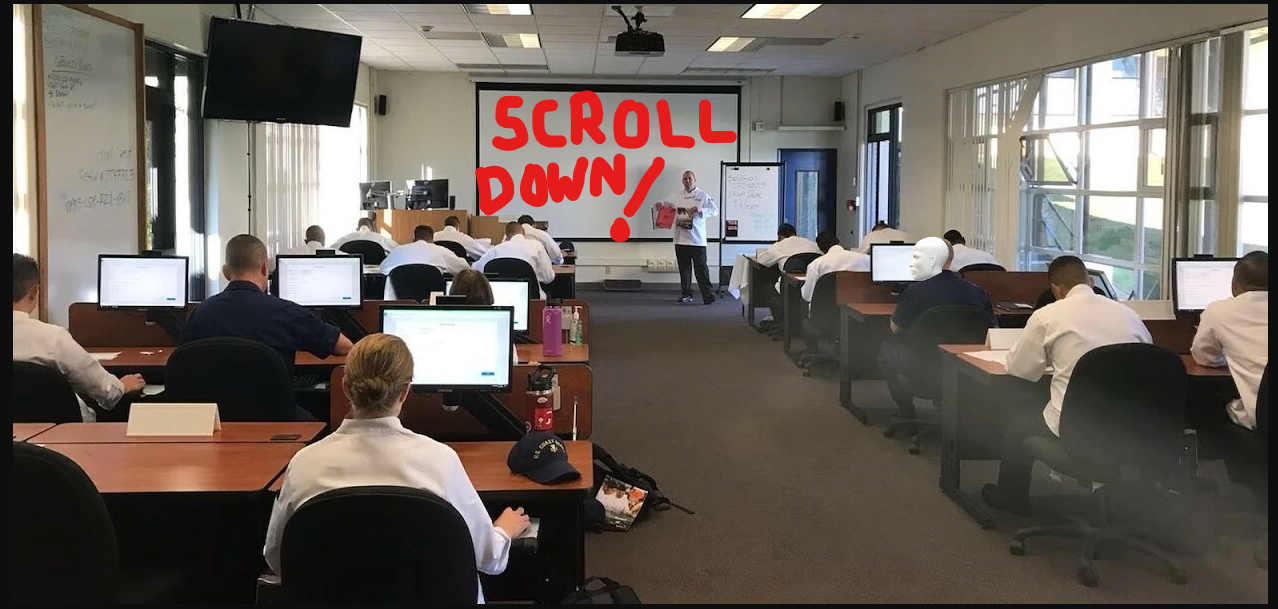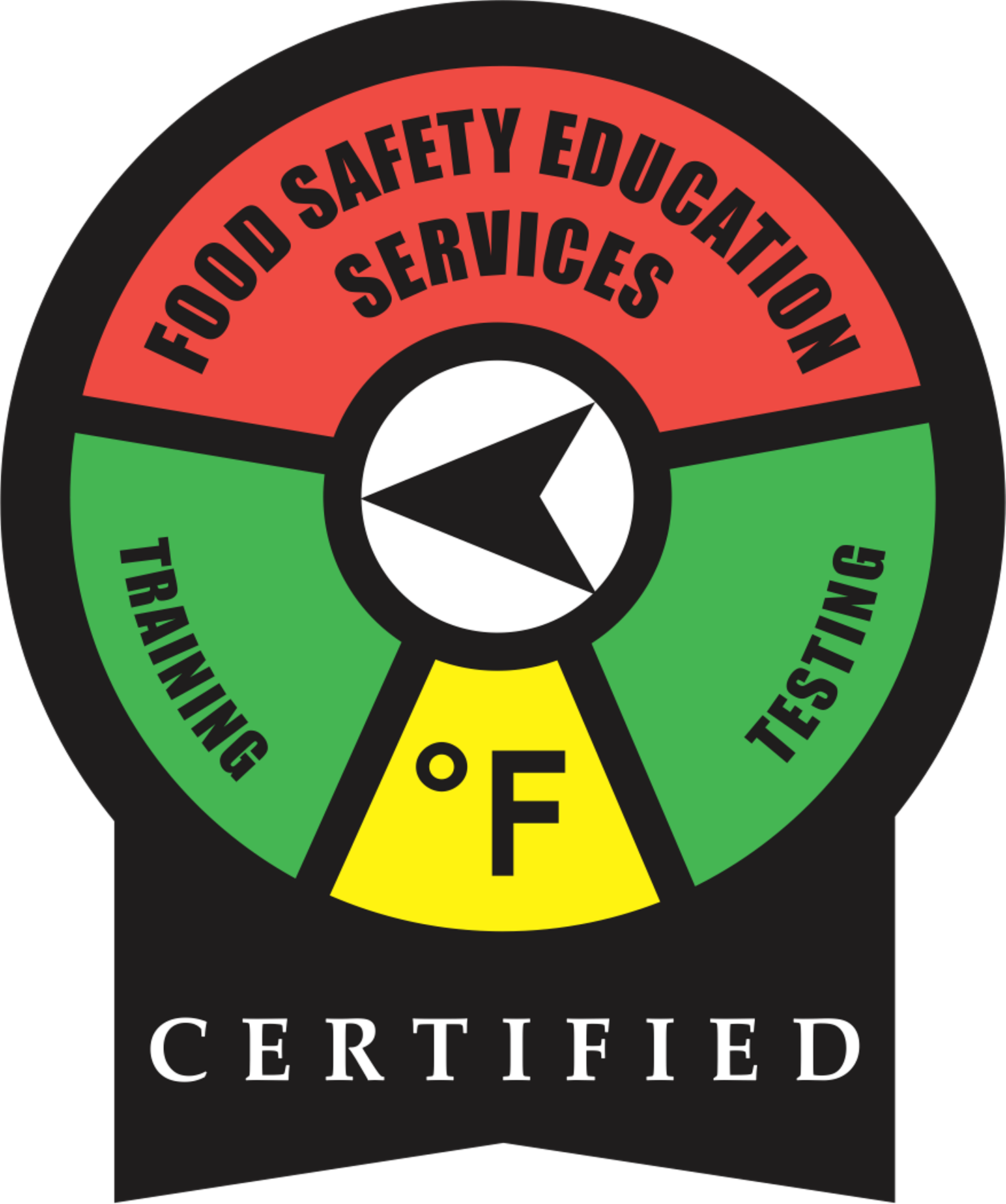Consider this when working in any job, even a kitchen / galley
- I've been asked to speak a little about leadership recently, and wanted to share this presentation by Mr. Dodson
- I felt it would be a good thing to share,for ALL leaders and potential leaders.
- Please review the 7 Values, and 11 Principals of Leadership at the bottom of the page
~Sgt. Feldman, J - U.S. Army Infantry~
~Mr. F - U.S. Coast Guard Culinary & Food Safety Instructor~
~Mr. F - Culinary Institute of America at Greystone - Food Safety Instructor~
The 11 Principles of Armed Forces Leadership
1. Know yourself and seek self-improvement.
2. Be technically and tactically proficient.
3. Develop a sense of responsibility among your subordinates.
4. Make sound and timely decisions.
5. Set an example.
6. Know your people and look out for their welfare.
7. Keep your people informed.
8. Seek responsibility and take responsibility for your actions.
9. Ensure assigned tasks are understood, supervised, and accomplished.
10. Train your people as a team.
11. Employ your team in accordance with its capabilities.
The Army Values
Many people know what the words Loyalty, Duty, Respect, Selfless Service, Honor, Integrity, and Personal Courage mean. But how often do you see someone actually live up to them? Soldiers learn these values in detail during Basic Combat Training (BCT), from then on they live them every day in everything they do — whether they’re on the job or off. In short, the Seven Core Army Values listed below are what being a Soldier is all about.
LOYALTY
Bear true faith and allegiance to the U.S. Constitution, the Army, your unit and other Soldiers. Bearing true faith and allegiance is a matter of believing in and devoting yourself to something or someone. A loyal Soldier is one who supports the leadership and stands up for fellow Soldiers. By wearing the uniform of the U.S. Army you are expressing your loyalty. And by doing your share, you show your loyalty to your unit.
DUTY
Fulfill your obligations. Doing your duty means more than carrying out your assigned tasks. Duty means being able to accomplish tasks as part of a team. The work of the U.S. Army is a complex combination of missions, tasks and responsibilities — all in constant motion. Our work entails building one assignment onto another. You fulfill your obligations as a part of your unit every time you resist the temptation to take “shortcuts” that might undermine the integrity of the final product.
RESPECT
Treat people as they should be treated. In the Soldier’s Code, we pledge to “treat others with dignity and respect while expecting others to do the same.” Respect is what allows us to appreciate the best in other people. Respect is trusting that all people have done their jobs and fulfilled their duty. And self-respect is a vital ingredient with the Army value of respect, which results from knowing you have put forth your best effort. The Army is one team and each of us has something to contribute.
SELFLESS SERVICE
Put the welfare of the nation, the Army and your subordinates before your own. Selfless service is larger than just one person. In serving your country, you are doing your duty loyally without thought of recognition or gain. The basic building block of selfless service is the commitment of each team member to go a little further, endure a little longer, and look a little closer to see how he or she can add to the effort.
HONOR
Live up to Army values. The nation’s highest military award is The Medal of Honor. This award goes to Soldiers who make honor a matter of daily living — Soldiers who develop the habit of being honorable, and solidify that habit with every value choice they make. Honor is a matter of carrying out, acting, and living the values of respect, duty, loyalty, selfless service, integrity and personal courage in everything you do.
INTEGRITY
Do what’s right, legally and morally. Integrity is a quality you develop by adhering to moral principles. It requires that you do and say nothing that deceives others. As your integrity grows, so does the trust others place in you. The more choices you make based on integrity, the more this highly prized value will affect your relationships with family and friends, and, finally, the fundamental acceptance of yourself.
PERSONAL COURAGE
Face fear, danger or adversity (physical or moral). Personal courage has long been associated with our Army. With physical courage, it is a matter of enduring physical duress and at times risking personal safety. Facing moral fear or adversity may be a long, slow process of continuing forward on the right path, especially if taking those actions is not popular with others. You can build your personal courage by daily standing up for and acting upon the things that you know are honorable.

